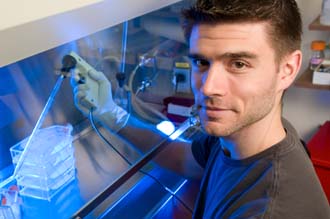Cell and Molecular Biology Cluster
The CMB cluster has three main goals. 1) Coordinate course offerings in the areas of cell and molecular biology to ensure critical subject areas are available to graduate students who have joined a participating research group. 2) Build a cross-campus community of research groups to promote intellectual exchange, collaborative opportunities, and sharing of technical expertise. 3) Provide advanced training in both fundamental and novel experimental approaches through short, intensive practicum classes.
Curriculum
Students pursuing the CMB Cluster will be expected to take either Cell Biology DGP 405 or IBIS 406 and one of the following molecular biology classes, Molecular Biology DGP 410, Eukaryotic Molecular Biology DGP 462, or Eukaryotic Molecular Biology IBIS 402. Students who have not taken statistics can either take an appropriate statistics course or Quantitative Biology IBIS 410. (This latter requirement is in keeping with the NIH directive to improve quantitative training of biology graduate students.) These course requirements will provide a common vocabulary and intellectual grounding for all the students within the cluster.
By the end of the third year, students will be expected to have taken two advanced topics courses. These will be offered by faculty or teams of faculty and will explore the current literature in selected areas.
Community Activities
The cluster is one of the main sponsors of the annual Chicago Symposium on Cell Signaling, which brings together leading researchers from around the country and the Chicago area signal transduction community. A poster session provides opportunities for students and postdrs. to present their work to a wider community. The cluster also sponsors an imaging workshop in conjunction with the annual Midwest Microscopy and Microanalysis Society meeting.
Advanced Training
The fields of cell and molecular biology have been undergoing a revolution in the available experimental approaches and their sophistication. For even a large well-funded laboratory, it is very difficult to stay current with the latest technology in multiple areas. To address these needs, the CMB cluster will sponsor short practical classes in these emerging research areas. Appropriate topics include: advanced light microscopy, cryo-EM, mass spec, protein purification, bioinformatics, and high-throughput analysis. To provide these short courses, we will partner with local experts, relevant on campus facilities, and outside experts.
Cluster Director
- Eric L Weiss, PhD Associate Professor, Molecular Biosciences
Training Faculty
- Ravi Allada, MD (IBiS) Molecular genetics of sleep and circadian rhythms
- Hossein Ardehali, MD, PhD (DGP) Role of mitochondria and metabolic processes in cancer growth, cardiac disease and metabolic disorders
- Rajeshwar Awatramani, PhD (DGP) Dopamine neurogenesis and subtypes; microRNAs in Schwann cell development
- James Bartles, PhD (DGP) Espin actin-bundling proteins, hair cell stereocilia, sensory neuroscience
- Joseph Bass, MD, PhD (IBiS and DGP) Genetic and genomic analysis of glucose metabolism and insulin resistance
- Daniel Batlle, MD (DGP)Renin angiotensin system in diabetic kidney disease and hypertension
- Jason H Brickner, PhD (IBiS) Spatial organization of the nucleus and the expression of genes
- Thomas Bozza, PhD (IBiS) Molecular Genetics and Physiology of Olfaction
- Richard Carthew, PhD (IBiS) RNAi and Gene Regulation
- Gabriela Caraveo Piso, PhD (DGP) The role of calcium signaling in synucleinopathies
- Navdeep Chandel, PhD (DGP) Mitochondria as signaling organelles
- Joan Cook-Mills, PhD (DGP) Endothelial cell function during allergic disease
- Kyle Eagen, PhD (DGP) Structural and biochemical basis of chromatin folding and chromosome condensation
- Yuanyi Feng, PhD (DGP)Cell and molecular mechanisms of cerebral cortical development
- Adriana Ferriera, MD, PhD (DGP) Cellular and molecular mechanisms of neurite elongation in central neurons
- Daniel Foltz, PhD (DGP)Epigenetic control of centromere assembly and chromosome segregation
- Marco Gallio, PhD (IBiS) The processing of temperature stimuli in the brain
- Jaime Garcia-Anaveros, PhD (DGP) Genetic dissection of hearing, touch and pain in mammals and in the nematode Caenorhabditis elegans
- Vladmir Gelfand, PhD (DGP) Cytoskeleton assembly and function; biochemistry of microtubules; mechanisms and regulation of intracellular transport
- Robert Goldman, PhD (DGP) Structure and function of cytoskeletal intermediate filament
- Cara Gottardi, PhD (DGP) Cell-cell adhesion and differentiation by the cadherin/catenin system
- Kathleen Green, PhD (DGP) Intercellular adhesion in differentiation, cancer, skin and heart disease
- Congcong He, PhD (DGP) Autophagy in metabolic regulation and pathogenesis of metabolic diseases
- Yuan He, PhD (IBiS)Structure and function of macromolecular machines on genes
- Robert Holmgren, PhD (IBiS) Cell-fate specification during development
-
Curt M Horvath, PhD (IBiS) Signal transduction and gene regulation in innate immune responses to cancer and viruses
-
Sui Huang, PhD (DGP) The Perinucleolar Compartment and Malignant Transformation
- Peng Ji, MD, PhD (DGP)Role of mDia1 in the pathogenesis of del(5q) mylodysplastic syndromes
- John Kessler, MD (DGP)Biology of neural stem cells and growth factors and their potential for regeneration of the nervious system
-
William Klein, PhD (IBiS) Molecular basis of Alzheimer's disease
-
Steven Kosak, PhD (DGP) Nuclear Form and Function in Cell Fate Decisions
- Tsutomu Kume, PhD (DGP)Cardiovascular development, cardiovascular stem/progenitor cells, angiogenesis
-
Carole LaBonne, PhD (IBiS) Formation, migration and differentiation of neural crest cells
- Laura Lackner, PhD (IBiS) Spatial organization within cells
-
Robert A Lamb, PhD, ScD (IBiS) Viral Glycoproteins, Ion Channels, and RNA-Binding Protein
-
Yong Chao Ma, PhD (DGP) Regulation of Motor Neuron and Dopaminergic Neuron Differentiation in Development and Disease
-
Kelly Mayo, PhD (IBiS) Cell signaling and gene expression in the mammalian reproductive axis
-
William M. Miller, PhD (IBiS) Regulation of hematopoietic stem cell self-renewal and lineage commitment
-
Brian Mitchell, PhD (DGP) Basal body duplication and the generation of cilia planar polarity
-
William A. Muller, MD, PhD (DGP) Leukocyte-endothelial cell interactions in inflammation
-
Thomas O’Halloran, PhD (IBiS) Molecular mechanisms of metal-responsive gene expression
-
Murali Prakriya, PhD (DGP) Intracellular Calcium Signaling
-
Ishwar Radhakrishnan, PhD (IBiS) Structure, function, dynamics and informatics of macromolecular complexes
-
Indira Raman, PhD (IBiS) Ionic mechanisms of neuronal excitability
-
Karen Ridge, PhD (DGP) Role of intermediate filaments in lung pathophysiology
-
Vijay Sarthy, PhD (DGP) Gene regulation, development and functional organization of the vertebrate retina
- H. William Schnaper, MD (DGP) Signal transduction in fibrogenesis
- Paul Schumacker, PhD (DGP)Oxygen sensing in embryonic development, tissue responses to hypoxia, and tumor angiogenesis
-
Hans-Georg Simon, PhD (DGP) Development and regenerative repair of vertebrate limbs and hearts
- Jacob Sznajder, MD (DGP)Mechanisms of acute lung injury as related to aging, high CO2, low oxygen, lung cancer and influenza
-
Edward Thorp, PhD (DGP) Inflammation Resolution and Repair in Cardiovascular Disease
-
Vinzenz Unger, PhD (IBiS) Mechanisms of membrane associated processes
-
John Varga, MD (DGP) TGF-ß and the Pathogenesis of Fibrosis
- Dileep Varma, PhD (DGP)Chromosome segregation in mitosis
- Douglas Vaughan, MD (DGP)Plasminogen activator system in cardiovascular disease
-
Eric L Weiss, PhD (IBiS) Signaling Pathways in the Control of Cell Architecture
-
Sadie Wignall, PhD (IBiS) Spindle assembly and chromosome segregation during cell division
-
Catherine Woolley, PhD (IBiS) Hormonal Effects on Hippocampal Synaptic Structure and Function
-
Ming Zhao, PhD (DGP) Membrane dynamics in physiology and disease
-
Jing Zheng, PhD (DGP) Deafness-related proteins, cochlear amplification, cell death and differentiation

